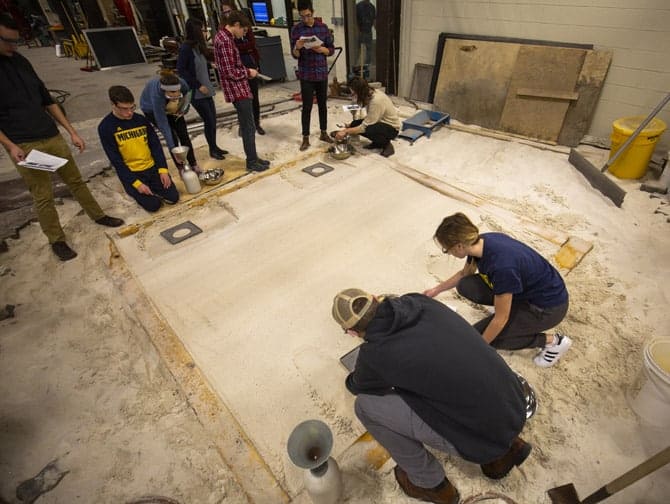Minor in Civil Engineering

The Minor in Civil Engineering is designed to provide undergraduate students pursuing majors other than Civil Engineering with exposure to foundational concepts relevant to the profession. It also gives students the opportunity to take an upper-level design class related to the discipline. Additionally, completion of the minor provides sufficient technical background to pursue a MS degree in Civil Engineering or in Construction Engineering and Management. Students pursuing any undergraduate degree at the University of Michigan, excluding the BSE degree in Civil Engineering, may pursue a minor in Civil Engineering.
Civil engineers design, plan, and improve the built environment and infrastructure systems, including buildings, power generation facilities, water supply networks, pollution control works, flood protection structures, dams, and canals, as well as vital network systems for commerce such as roadways, airports, railroads, and ports. Civil engineering encompasses several subdisciplines, including hydraulics and hydrology, structural, geotechnical, construction, environmental, civil engineering materials, and transportation engineering.
Students pursuing a Minor in Civil Engineering must choose from one of three tracks:
- Structural, Geotechnical, and Materials Engineering
- Construction Engineering and Management
- Mobility Systems Engineering
Each track has its own set of prerequisites.

Eligibility
Any student pursuing an undergraduate degree at the University of Michigan, excluding the BSE degree in Civil Engineering, may pursue a minor in Civil Engineering.
To be eligible, a student must be in good academic standing (with a GPA of 2.0 or higher), and must have completed all course prerequisites with a grade of C or better.
To declare the minor, schedule an appointment with a faculty program advisor.